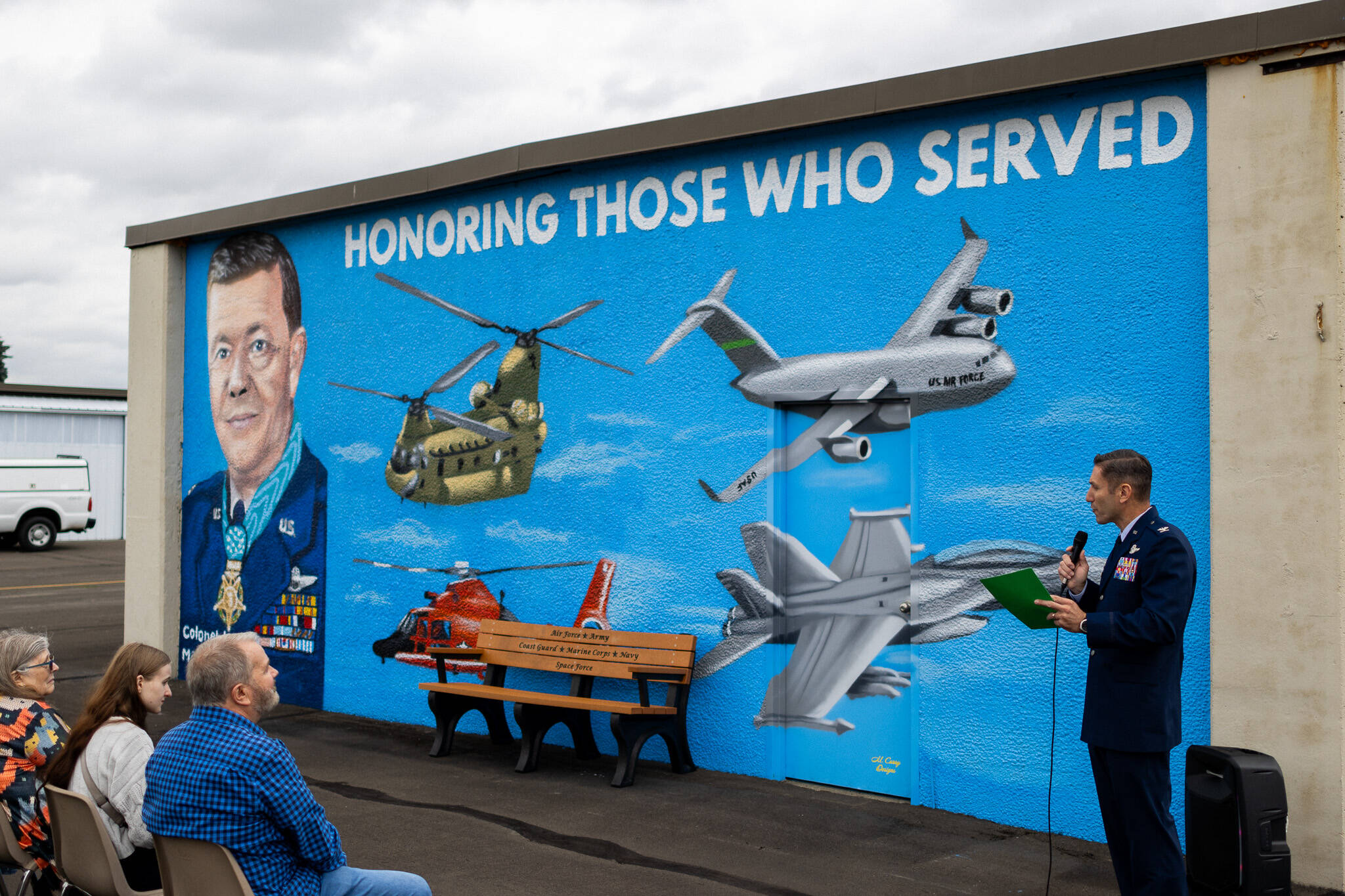On June 17, the City of Auburn celebrated a local hero, Congressional Medal of Honor recipient Lt. Col. Joe Jackson, and along with him, all area veterans, with a mural at Auburn Municipal Airport.
Here’s Jackson’s story, as partially excerpted from a write-up by the U.S. Airport Support Division, and from his citation for the medal, which President Lyndon B. Johnson awarded him during a ceremony at the White House on Jan. 16, 1969.
On May 12, 1968, North Vietnamese and Viet Cong forces were overrunning a Special Forces camp at Kham Duc, South Vietnam. Having overtaken the forward outpost, the enemy was in complete control of the airstrip, which was hemmed in on all sides by mountainous terrain.
On that day, Jackson was commander of an unarmed, C-123 transport aircraft. He volunteered to fly from Da Nang to Kham Duc, South Vietnam, on an emergency mission, and as he learned only when he was circling above the camp, help rescue a three-man USAF Combat Control Team that had been accidentally left behind in the evacuation of the camp by air.
The situation was dire. The enemy had established gun positions on the airstrip, and was raking the camp with rifle fire, mortars, light and heavy automatic weapons, and small arms fire.The camp was in flames, and ammunition dumps were continuously exploding and littering the runway with debris.
What’s more, the intense enemy fire had destroyed eight aircraft, leaving one plane on the runway, reducing the strip’s usable length to only 2,200 feet. To further complicate any rescue landing, the weather was deteriorating rapidly, allowing only one air strike prior to any landing.
Although fully aware of the extreme danger and likely failure of such an attempt, Jackson chose to land his aircraft and attempt the rescue.
“Displaying superb airmanship and extraordinary heroism,” the citation reads, Jackson “landed his aircraft near the point where the combat control team was reported to be hiding. While on the ground, his aircraft was the target of intense hostile fire. A rocket landed in front of the nose of the aircraft but failed to explode.”
Once the combat control team was aboard, according to the citation, Jackson got airborne despite a mortar barrage and intense automatic weapons fire from the surrounding hills, directed across the runway in front of his aircraft. After landing at Da Nang, the crew discovered that not a single bullet had touched their aircraft during the entire flight.
Rescued that day were Air Force members Maj. John W. Gallagher, Technical Sgt. Morton J. Freedman, and Staff Sgt. James G. Lundie.
As the citation reads:
“Lt. Col. Jackson’s profound concern for his fellow men, at the risk of his life above and beyond the call of duty, are in keeping with the highest traditions of the U.S. Air Force and reflect great credit upon himself and the Armed Forces of his country.
“For conspicuous gallantry and intrepidity in action at the risk of his life above and beyond the call of duty. Lt. Col. Jackson distinguished himself as a pilot of a C-123 aircraft. Lt. Col. Jackson volunteered to attempt the rescue of a three-man USAF Combat Control Team from the Special Forces camp at Kham Duc. “
Jackson, a former Auburn resident and also a veteran of World War II and the Korean War, died on Jan. 12, 2019, in the city of Orting at 97 years of age.


